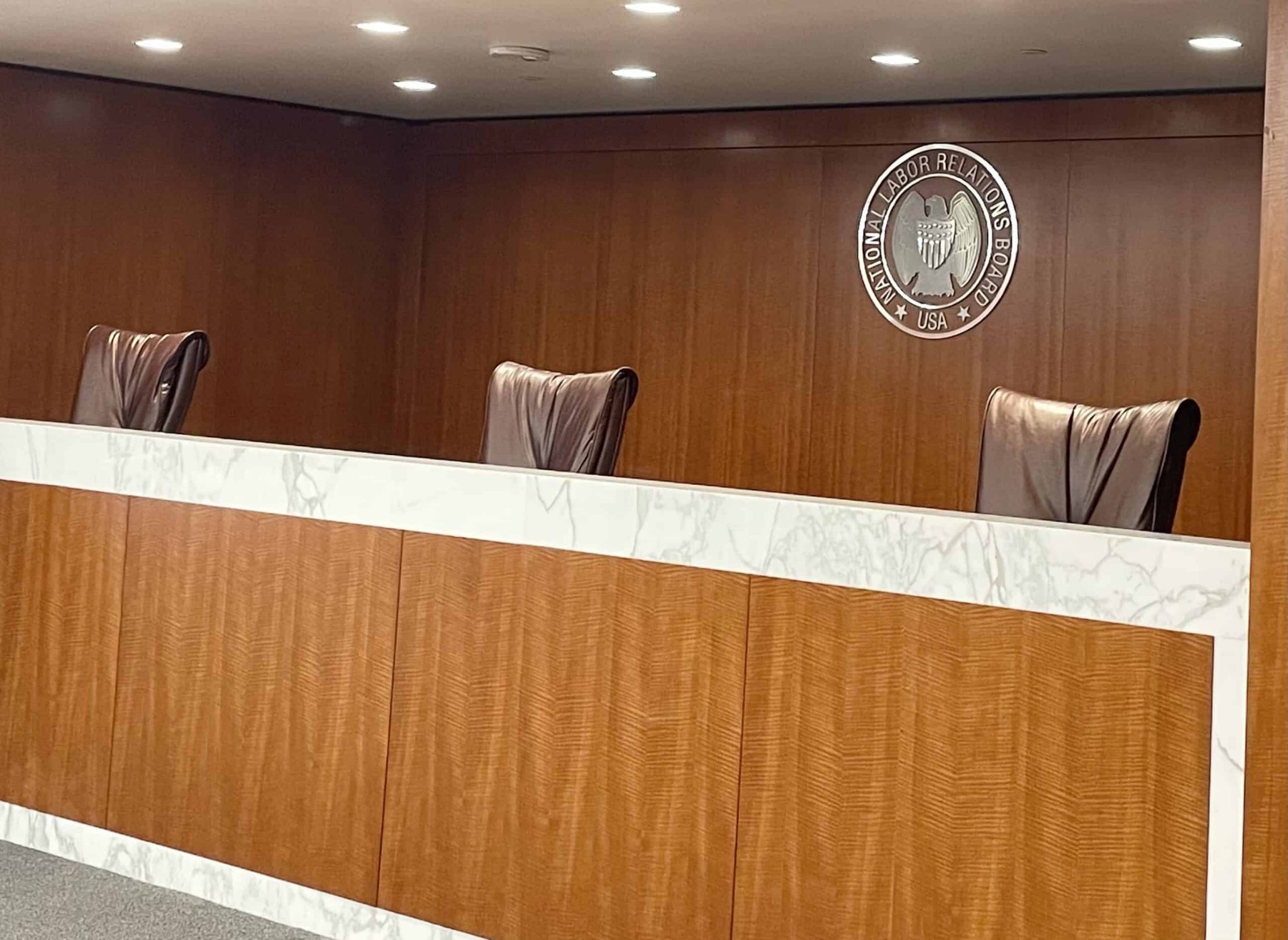
Jason Vazquez is a staff attorney at the International Brotherhood of Teamsters. He graduated from Harvard Law School in 2023. His writing on this blog reflects his personal views and should not be attributed to the IBT.
The Senate passed the $369 billion Inflation Reduction Act on Sunday, a social spending package arguably representing “one of the single biggest investments ever made on climate in the world.” House Speaker Nancy Pelosi (D-CA) pledged yesterday that she will urge lawmakers in the lower chamber to approve the sweeping legislation as soon as Friday. The final package is moderate in many respects, omitting several of the more transformative aspects of President Biden’s original Build Back Better program, including the billions of dollars in enforcement funding that would have flowed to the federal workplace agencies under the original proposal. For that reason, the union representing NLRB employees issued a stream of livid tweets on Tuesday, flaming congressional Democrats for “deliberately ignor[ing]” an opportunity to increase the Labor Board’s funding. Indeed, the NLRB’s annual appropriation has not risen since 2014, which, in view of inflation, effectively amounts to a considerable budget cut. Accordingly, in recent years the Board has found itself impelled to reduce its staffing levels by nearly 40 percent, a development which has, in the words of the NLRB Union, plunged the agency into “a crisis.”
In doctrinal news, on Monday the NLRB rejected Starbucks’ attempt to challenge its new standard expanding the situations in which a mail-ballot representation election is permissible. The Board recently enunciated the test in Aspirus Keweenaw, and, in objecting to a union victory at one of its stores in Washington, Starbucks asked the Board to revisit its propriety. The agency declined to do so.
In the world of employment law, New York City revealed on Tuesday that it had reached a $20 million settlement with Chipotle in connection with hundreds of thousands of violations of the city’s scheduling laws. The eye-popping figure, which is the largest worker protection settlement in the history of the Big Apple, will be distributed to nearly 13,000 current and former Chipotle employees. In unveiling the agreement, mayor Eric Adams recognized that “restaurants and fast food outlets” form “a critical part of our economy and our daily life,” and “cannot exist without the hard-working people who are cooking and serving and delivering our food.” In addition, the mayor expressed gratitude to SEIU 32BJ, whose efforts and advocacy had uncovered many of the underlying violations. NYC’s settlement thus underscores unions’ capacity not only to secure higher wages and better working conditions for their members, but to bolster the enforcement of existing legal protections for all working people.
Vox Media released a video on Tuesday exploring the collapse of private-sector labor unions in the United States. The clip aspires to “dig into a few key drivers of low union density in the U.S. relative to other wealthy countries,” reasoning that “if we can make sense of the historical decline, we might understand what it would take to reverse it.” Given that union density has waned across the globe, Vox concedes that the decline must reflect, to some extent, such transnational economic trends as globalization and automation. However, the video explains that most of the decline is attributable to union complacency, intense and unlawful employer resistance, and pro-management changes to federal labor law. The video articulates a sharp and compelling, albeit far from novel, narrative describing the social, economic, and legal forces driving labor’s collapse. More significantly, however, the very fact that Vox continues to publish content about unions and unionization evinces the surge of enthusiasm for the labor movement among many young progressives.






Daily News & Commentary
Start your day with our roundup of the latest labor developments. See all
July 9
In Today’s News and Commentary, the Supreme Court green-lights mass firings of federal workers, the Agricultural Secretary suggests Medicaid recipients can replace deported farm workers, and DHS ends Temporary Protected Status for Hondurans and Nicaraguans. In an 8-1 emergency docket decision released yesterday afternoon, the Supreme Court lifted an injunction by U.S. District Judge Susan […]
July 8
In today’s news and commentary, Apple wins at the Fifth Circuit against the NLRB, Florida enacts a noncompete-friendly law, and complications with the No Tax on Tips in the Big Beautiful Bill. Apple won an appeal overturning a National Labor Relations Board (NLRB) decision that the company violated labor law by coercively questioning an employee […]
July 7
LA economy deals with fallout from ICE raids; a new appeal challenges the NCAA antitrust settlement; and the EPA places dissenting employees on leave.
July 6
Municipal workers in Philadelphia continue to strike; Zohran Mamdani collects union endorsements; UFCW grocery workers in California and Colorado reach tentative agreements.
July 4
The DOL scraps a Biden-era proposed rule to end subminimum wages for disabled workers; millions will lose access to Medicaid and SNAP due to new proof of work requirements; and states step up in the noncompete policy space.
July 3
California compromises with unions on housing; 11th Circuit rules against transgender teacher; Harvard removes hundreds from grad student union.